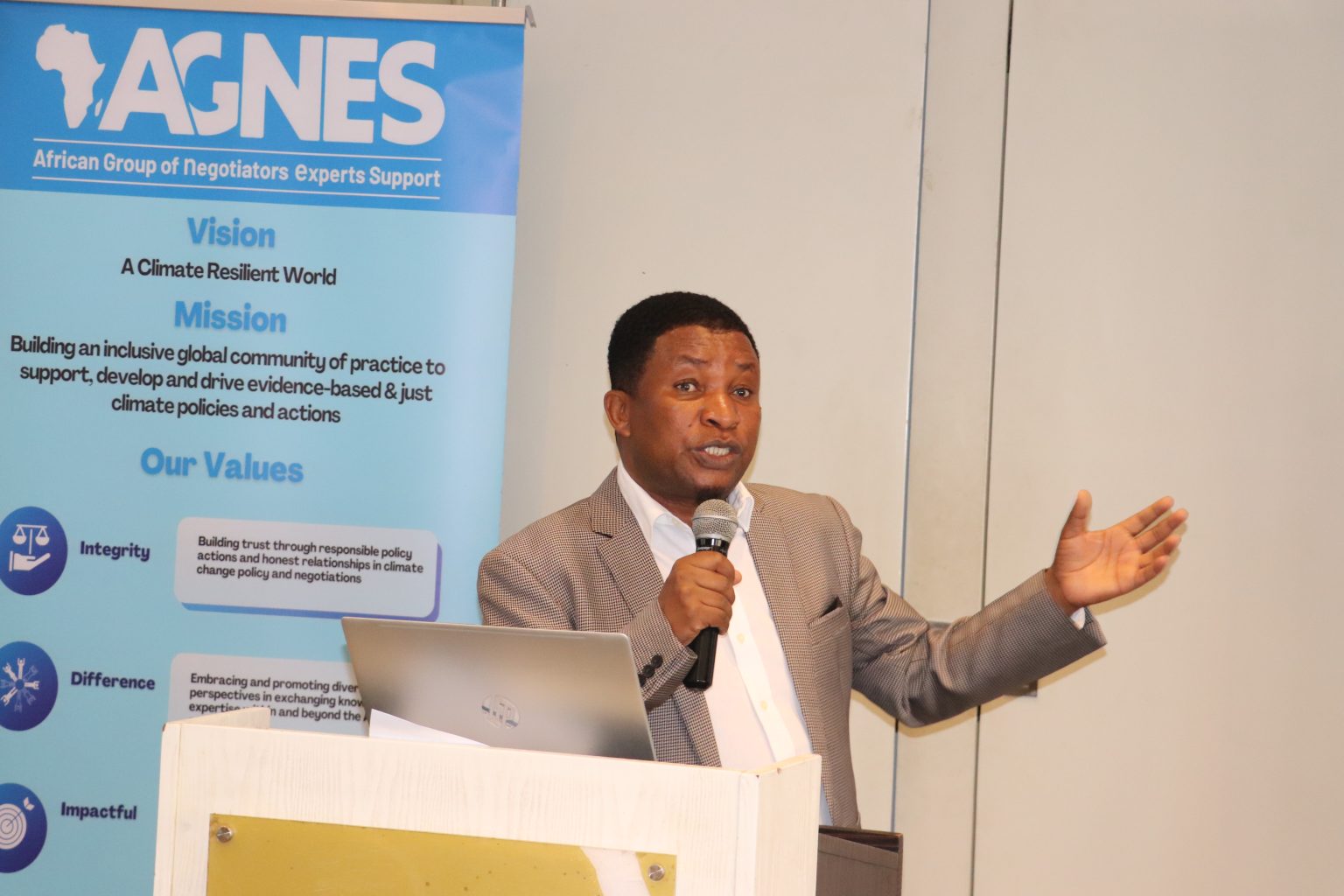By Lenah Bosibori
As the world grapples with the urgent need for climate action, a group of indigenous communities from Southern parts of Kenya are pushing to have their traditional knowledge integrated in the scientific knowledge.
Samate Ann representing Mainyoito Pastoralists Integrated Development Organization (MPIDO), said that the reason they are asking to be integrated is because they have seen their traditional knowledge work and it is what has kept them alive.
Ann was speaking during the African Group of Negotiators Experts Support (AGNES) that has convened in Nairobi to find a crucial convening strategy in collaboration with key partners with a focus on aligning African priorities with global climate objectives.
“The reason why we are asking for our knowledge to be integrated in the scientific knowledge is because this has worked for us and brought us this far, for us who are alive today is because of our traditional knowledge,” said Ann.
Ann adds that they use the traditional knowledge in their health services too because from the fact they are marginalized, even their health services are marginalized. “Traditional medicines and herbs have been working for us and this is how we have been able to survive because from the fact that we are very much marginalized then it means we are marginalized even in our social services including health, “added Ann.
By requesting this, Ann says that it will help their traditional knowledge to be recognized in a special way and be protected to be used by meteorological departments in its early warning signs.
“For us pastoralists, we know when the rains are about to begin, we know when it is going to dry, you simply cut the intestines of a goat and you can tell when it will rain and when it will dry, so the meteorological department can borrow from that because it has not failed us,” adds Ann.
“For the longest time, indigenous people have managed to be resilient because of their traditional knowledge, the pastoralists have managed to be around despite the rampant drought and very serious changes in weather patterns, we have been able to be around because of our traditional knowledge. For the pastoralists, mobility has been our core and backbone of our traditional knowledge which has been the main driver of resilience for us,” adds Ann.
To concur with Ann, Ms Anne Wang’ombe the Principal Secretary State Department for Gender and Affirmative Action said that Climate change is affecting women and children more, with support from AGNES, the government will map all the vulnerability hotspots.
’In Kenya, we have embarked on a National Gender and Climate Change vulnerabilities hotspot mapping exercise, with support from AGNES, to inform targeted actions in sectors such as Water, Energy, and Agriculture. Beyond my department, the Kenyan government has prioritized climate change initiatives, including the promotion of green energy and tree planting initiatives. Our collective representation across various sectors underscores the holistic approach needed to tackle climate challenges, integrating gender perspectives into policies and actions. ’Ms. Wang’ombe said.
The four-day meeting that brought together climate experts from 30 African countries ranging from policymakers, negotiators, experts, practitioners, farmer organizations, civil society organizations (CSOs), UNFCCC and gender national focal points, development partners, and international and regional research organizations is expected to conclude on Friday with a Common African Position ahead of the SB60 session in Bonn, Germany in June this year.
The common African position will provide the African negotiators with a strategy and an approach to engage in negotiations on agriculture, adaptation, loss and damage and adaptation finance. The discussions will also focus on health, gender and water as well as biodiversity.
On his part, Dr. George Wamukoya, OGW, Team Lead, AGNES said that there is urgency to address the warming planet that has never been palpable “We stand at a critical juncture in the fight against climate change. The urgency to address the warming planet has never been more palpable. As we convene for the Pre-SB60 AGNES Strategy Meeting, it’s imperative that we unite under a common African position,” said Wamukoya.
He further adds that together with esteemed partners and collaborators, they aim to pave the way for meaningful action at the upcoming SB60 session. “Our collective efforts, guided by reflection on COP28 outcomes, will shape strategic approaches across crucial themes: agriculture, adaptation, gender equality, health, water security, biodiversity, and nature-based solutions. Through dialogue, collaboration, and determination, we endeavor to chart a path towards resilience, sustainability, and equitable development. Let us seize this opportunity to make a tangible difference in the fight against climate change,” reiterated Wamukoya.
Different stakeholders also highlighted how climate change has impacted various sectors including health, agriculture, biodiversity and blue economy.
Desta Lakew, Global Partnerships for Africa Lead, AMREF Health Africa advocated for greater recognition of health considerations within climate negotiations dialogue.
“As we convene in Nairobi for the Pre-SB60 Strategy Meeting, it’s imperative to acknowledge the urgent nexus between climate change and health. “AMREF Health Africa stands at the forefront of this critical dialogue, advocating for greater recognition of health considerations within climate negotiations,” said Lakew.
“With rising temperatures exacerbating disease burdens and threatening food security, the time for action is now. We urge increased interdisciplinary collaboration, investment in research, and political support to ensure that health remains central to climate discourse. Together, let’s pave the way for a resilient future where the well-being of people and the planet go hand in hand,” added Lakew.
Pan African Climate Justice Alliance (PACJA) also pledged to leverage its convening power by facilitating broad-based consultations on adaptation issues at SB60 and engaging with negotiation blocks.
“PACJA aims to anchor key agendas legislatively through platforms like the Pan African Parliament and ACLI networks, while providing a unified platform for African non-state actors. Additionally, PACJA will co-host Africa Climate Talks with UNECA to amplify messaging and support the Keep Your Promise Campaign for increased adaptation financing,” Dr. Mithika Mwenda, Executive Director, PACJA.




